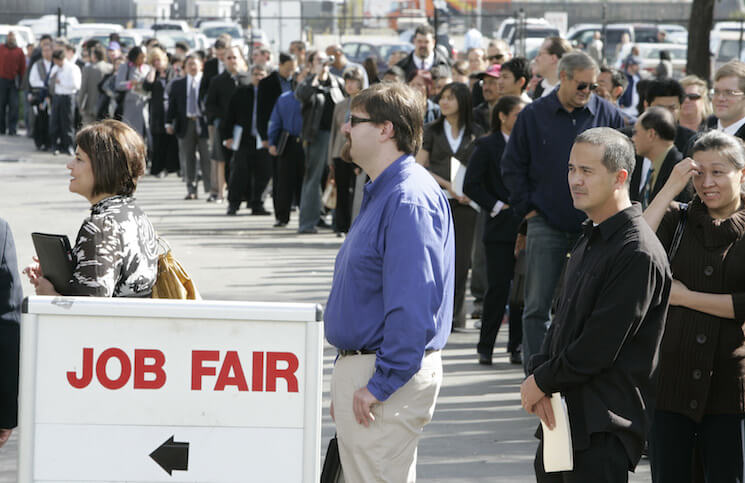Unemployment insurance might increase unemployment, but only slightly

The damage the U.S. labor market endured during and after the Great Recession was massive. The unemployment rate, after rising for 29 months, spiked at 10 percent in October 2009—a level not seen since the early 1980s. With such a big jump in unemployment, policymakers took steps to significantly expand the unemployment insurance system. They dramatically increased the duration of the program, allowing eligible workers to receive benefits for up to 99 weeks in some cases.
Such a response made sense. With unemployment sharply on the rise and then remaining elevated, it is important for workers looking for a job—and for the aggregate demand in general—to be able to collect benefits if finding a job is difficult. But there’s been some concern that by reducing the incentive to find work, expanding unemployment insurance itself actually increases the unemployment rate. According to a new paper on the subject, that may be true but it also is of minimal importance at most.
But first, let’s put the new paper in context. In studying the effect of unemployment insurance on unemployment, economists have generally gone in two directions. The first is to look at the microeconomic effects and try to understand how the benefits affect the decisions of individual workers. Research in this vein after the Great Recession finds that unemployment insurance does increase the unemployment rate, but that’s because workers remain in the labor force as they look for work.
The second way to look at unemployment insurance is in the macro sense to see how it affects aggregate unemployment when the insurance is extended during a recession. The micro approach only captures what economists call “partial equilibrium” effects, so macro approaches try to see how the unemployment rate is changed after the extension at the macro level, estimating the “general equilibrium” effects. Some of the papers looking at macroeconomic outcomes find a small effect of UI extensions on unemployment, while others find large negative effects.
That’s where the new paper by Gabriel Chodorow-Reich of Harvard University and Loukas Karabarbounis of the University of Chicago fits in. And as you could guess from its title—“The Limited Macroeconomic Effects of Unemployment Benefit Extensions”—the paper finds only a slight macroeconomic effect of increasing the duration of unemployment insurance. How they find this result is quite interesting. A problem with figuring out how much unemployment benefits increase unemployment is that they get extended when unemployment is going up. So it’s hard to figure out which way the causation runs in the relationship: Is the extension causing a rise in the rate or vice versa?
Chodorow-Reich and Karabarbounis figure out a nifty way of untangling the causation. Unemployment benefits “trigger on” once the unemployment rate in a state has been over a defined threshold for a certain amount of time. But sometimes there are measurement issues with state unemployment rates that cause the benefits to trigger on when the underlying economic situation wouldn’t call for it or vice versa. The changes in this measurement error are random, which means the authors can measure the causal impact of the extensions. Their empirical results imply that the increases in the duration of unemployment benefits increased the unemployment rate by 0.3 percentage points.
The unemployment rate increased overall by 5 percentage points during the Great Recession, so the extended unemployment benefits were behind only 6 percent of the overall increase in the unemployment rate between December 2007 and June 2009. Concerns, then, that policies designed to help fight unemployment actually increase it are way overblown. Our concerns about the unemployment insurance system might be better directed toward other areas.
